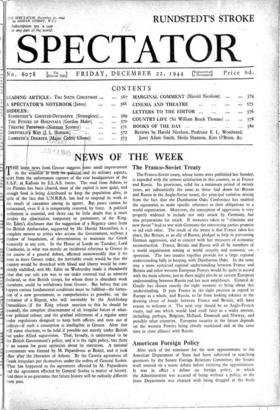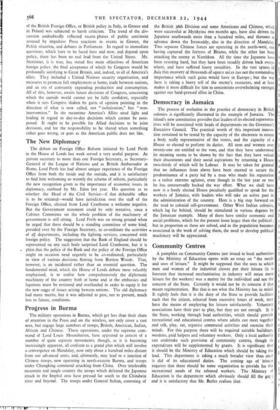American Foreign Policy
After each of the nominees for the new appointments to the American Department of State had been subjected to searching questions by the Senate Foreign Relations Committee, the Senate itself entered on a warm debate before ratifying the appointments. It was in effect a debate on foreign policy, in which the Administration was accused of being without a policy, or the State Department was charged with being dragged at the heels of the British Foreign Office, or British policy in Italy, in Greece and in Poland was subjected to harsh criticism. The trend of the dis- cussion undoubtedly reflected recent phases of public sentiment aroused by impulsive Press reactions to__ events in Greece, the Polish situation, and debates in Parliament. In regard to immediate questions, which have to be faced here and now, and depend upon policy, there has been no real lead from the United States. Mr. Stettinius, it is true, has stated five main objectives of American foreign policy, the final acceptance of which by Congress would be profoundly satisfying to Great Britain, and, indeed, to all of America's allies. Thcy included a United Nations security organisation, and measures to promote full employment at home, trade between nations, and an era of constantly expanding production and consumption. All of this, however, awaits future decisions of Congress, concerning which the outside world cannot yet be fully confident, especially when it sees Congress shaken by gusts of opinion pointing in the direction of what is now called, not " isolationism," but " non- intervention." In the meantime America's Allies need light and leading in regard to day-to-day decisions which cannot be post- poned. It ought to be possible for Allied decisions to be joint decisions, and for the responsibility to be shared when something either goes wrong, or goes as the American public does not like.



























